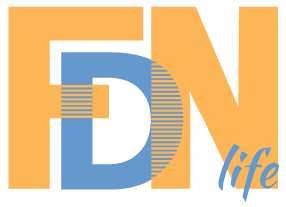
TOP READS - BUSINESS >
HOW TO GET STARTED AS A FREELANCE WRITER
– Insider Tips & Strategies For Freelance Writers
Are you an aspirant or beginner freelance writer needing advice on how to get the ‘proverbial foot in the door?’
Back in the day, mom stayed at home while dad went to the office to provide for the family. Much has changed since then. Nowadays, you don’t necessarily have to leave your home to earn a living. The digital age has blessed us with many advances, making it possible for us as writers to live and earn well from home working as freelance writers.
This is all nice and wonderful, but how do you get started in the freelance writing industry? How do you go from a blue-collar office worker to a remote freelance worker?
I am an introvert by nature. I don’t talk a lot and usually tumble over my words when caught in a conversation. This has caused me to become a bit of a ghost amongst people. I am present, but not always noticed. But give me a pen and paper, computer or typewriter, and I can jot down words that will put even Shakespeare to shame. Wanting to live out my dream of working from home, I decided to explore remote freelance writing in 2018 as an adventurous new career move.
I quickly learned that Google could be my best friend, but also my worst enemy when it comes to searching for freelance writing projects. Not having the foggiest idea of where to start, I went to the trusty Internet back in 2018 when I just started. As this is a relatively new territory, not many self-help books are available to guide you on where to start looking for freelance writing gigs, vacancies, or the best way to approach clients.
Google provides you with loads of information, but sometimes, unfortunately, too much. There is not a lot of restriction on what is placed on the Internet, and you can get caught up with a lot of hocus pocus companies, unqualified leads, or articles that have no valuable, practical information listed in them.
Call it a bit of luck, but I came across a company that accepted me with my tiny bit of experience, and my freelance career got started during January 2018.
Through experience gained treading the hard road, I learned a few things that could be of a bit of help to beginner freelance writers wanting to explore similar pathways:

HOW TO GET STARTED AS A FREELANCE WRITER
1 – Start With The Basics
Sometimes to start, we need to begin at the bottom of the ladder. I am not saying accept any meager paying job just to write but keep an open mind.
If you’re a beginner writer, the likelihood is that your writing is not that great yet. (Even though you might think otherwise. All of us writers are in love with our own work after all, often not being objective enough to see our own writing mistakes or shortcomings). Most clients will notice the level of your writing immediately and will want to pay accordingly. I’ve seen a lot of writers who want to start at the top, thinking they can charge $50 – $70 an hour or $1,000 for a 500-word article, but who has a small or non-existent portfolio, and little experience. Most of them end-up discouraged after 2 – 6 months not having landed any clients and question, “why am I not getting any clients?”
When you’re just starting as a freelance writer, build a strong portfolio first, together with a list of client references and reviews that you can supply to the new client you are pitching to. In the writing world, a CV is of little use. (A study by Upwork in 2019 found that 84% of clients hire freelancers based on experience, expertise, and the samples they supply. A formal qualification had little impact on their final decision to hire a freelance writer.) I would thus strongly encourage you to work hard on creating a stellar portfolio, client references, and reviews.
2 – To ‘Niche’ or ‘Not-To Niche’ as a Freelance Writer
When you start out writing, you might have heard from ‘them’ that you should ‘find your niche.’ This is great and all, but how do you know what your niche is if you don’t have much or any experience as a freelance writer?
In my experience, it is worthwhile to start writing on topics that interest you the most and create a portfolio from there. Also, write on topics that you have experience in from a past job you did or that you have studied. But, do not succumb to writing only in one or two niches when you first start, since you might realize later on that these ‘niches’ bore you to death or are not worthwhile.
When I started, I also thought I should pick my niche right away, so I did a lot of basic writing in one or two areas of interest. But, I soon realized it was much more fun to be open to new challenges and learning opportunities. We are never too old to learn and grow more. Therefore, I took on most opportunities to write in a variety of genres. After almost 2-years, I now have a greater understanding of the ‘niches’ I enjoy writing in, and the ones I should rather avoid. My portfolio is stronger today due to my willingness to expand my horizons ever so often and learning new ways to improve my writing skills.
Top Tip: Add a bit of freelance writing adventure to the mix. Be open to try new and challenging projects. This will help you to decide what you enjoy, what you are good at, and what an epic fail on your part is.
Be open to accept feedback and critique on your work, and build and improve continuously
3 – Money Management As a Beginner Freelance Writer
Being able to work from anywhere for anybody, and at any time is superb. Payment thereof, not so much. Different countries conclude business in different currencies. When you start on a new writing project for a new client, find out well in advance how their payment structure works, as well as the systems they use to complete those. Most companies pay via PayPal, Payoneer, or Stripe. If you don’t have an account yet with these payment gateways, register for one as soon as possible. Additionally, you’ll have to connect your payment gateway to your local bank account to ensure international payments are transferable. Otherwise, you’ll be stuck with the money online and not be able to use it in your country’s currency.
In the United States and Europe, it’s generally much easier to get paid online or transact via PayPal, Payoneer, Stripe, 2Checkout, or any of the other popular payment platforms. But if you’re from a 3rd world country such as me, getting paid can be trickier. South Africa and India, for example, require all citizens who earn foreign currency (such as through PayPal) to transfer their earnings into a local bank account within a certain number of days. South African’s have 30 days to transfer money from PayPal through FNB bank to their bank. In India, it’s only 24-hours, with a forced automation system.
Whatever the payment situation that applies in your country, find out how things work, as well as what the most straightforward way would be to get paid.
Top Tip: If it is possible to get a debit card from your payment gateway, do get one. With Payoneer, for example, you have the option to order a debit card linked to your online account. This card can be used at most ATMs around the world, or at any bank to withdraw money.
4 – Administration & Time Keeping For Freelance Writers
A lot of remote companies make use of timekeeping software for their employees. The purpose of this is to give objective feedback on the actual hours worked and the productivity level. You might be required by your client (or the company you write for) to provide certain information or get paperwork done for your earnings or salary to be set-up. If you wait too long, your payouts might be delayed.
Specific time-keeping systems are also used in conjunction with this, such as Trello or hourly-tracking software. Please ensure that you know how these work and that your tracking software is functioning optimally. It will be a dark day if you don’t get paid for all the hours that you worked.
5 – Freelance Writer Organization and Planning
Organization and Planning is a pain in the butt! Not only for us as freelance writers, but any creative I believe. Now that you work on your own, certain HR matters will be for your account. Retirement, medical aid, taxes, accounting, operating expenses, and you name it, will be deducted directly from your pocket.
Once you start your own freelance writing business, get your budget in order ASAP. Allocate the set amounts you need each month for important stuff such as medical aid, car insurance, household expenses, and ensure to save towards it throughout the month or as and when you get paid. It is very embarrassing when you cannot commit to your payments due to clients not paying you on time, or your remote writer salary not going through due to payment gateway issues.
Note to self – working for oneself has a downside – no work, no pay. Using the tools noted above, you can commit money towards that to carry you through the quiet times.
Another important factor, make sure to give the taxman his dues. Taxes can become a major headache toward tax-times. I’ve found that it works best if I plan my year and consult with a professional accountant as to what type of taxes I’m liable for, and the estimated amount I’ll have to give to the taxman.
6 – Volunteer Or Work For Free To Gain Experience & Build Your Freelance Writer Portfolio
Not all of us are born with a set of skills for every contingency in life. Keep your eyes and ears open and listen. Sometimes it can be excellent exposure and experience to volunteer your writing services to an NGO or volunteer organization. (If the writing they need is within the genre(s) you want to specialize in.)
You may also opt to do free writing assignments for friends, family, ex-colleagues, or companies to get your portfolio of samples, references, and testimonials going. We all have to start somewhere. Do not be afraid of free work.
Network with people in similar or related fields. You’d be amazed at the opportunities that arise when you least expect them. Besides that, it is also good for the soul to do some goodwill from time to time.
7 – Learn How To Sell Your Freelance Writing Services ASAP
Even if you are just starting as a freelance writer, get into the habit of pitching your writing services to clients from the get-go. I know sales might be the furthers thing from your mind when you thought of becoming a freelance writer, and you thought you’ll now work from home in pajamas and be rid of the daily grind and politics you endured at your previous office job. But the fact is, to earn a good living as a writer, you need to learn how to sell your services.
8 – Where To Find Freelance Writing Gigs
This will be the question you’ll ask yourself almost every day. Finding writing work can seem a daunting task, but it doesn’t have to be. Learn to keep an open mind and find opportunities where others see none.
- Locally: Sometimes, the best way to earn money is by connecting with local businesses, brands, and individuals in your own country, state, or neighbourhood. Put together your portfolio, writing samples, and reviews, and pitch your services to locals. Most of them are always on the hunt for writers who don’t charge a massive amount of money for a task to be done. And you are allowed to use the material and their review in your portfolio.
- Freelance Platforms: There is a vast number of freelance platforms available today, such as Upwork, Freelancer.com, Kolabtree, Guru, to name but a few. Consult good old Google and search for ‘top freelance writing platforms 2020.’
- LinkedIn: Finding well-paying clients are worth the time spend on LinkedIn. Most of the world’s foremost companies and business people hang out on LinkedIn. Though cold-pitching on LinkedIn will take some time getting used to as a freelance writer, as well as results often much slower than on freelance platforms, from time to time, you will notice landing higher-paying clients on LinkedIn.
The above are just a couple of suggestions. Find out what works best for you, but also keep your eyes open and continue to educate yourself on where and how to find and pitch to clients.
9 – Persistence Is The Key
Working as a freelance writer is fun and fulfilling. You are flexible in arranging and coordinating your time to your heart’s content. It is also the hardest, toughest, and most humbling job in the world. When the hard times hit, just keep soldiering on. Try, try and keep on trying some more. You can only get better the more you practice.
Looking back from where I started up to now, it has been an amazing process and learning experience. I would not change anything. If you are interested in starting your freelance writing journey as well, have faith and take each step-in stride, and know that you can do it!
CONNECT
Connect with me here on FDN Life Magazine or leave a comment in the comments section below.

FDN LIFE ARTICLE >
SHARE
FDN LIFE MAGAZINE - ISSUE 6 >
CONTENT
- Editor's Notes >
- HOW TO GET STARTED AS A FREELANCE WRITER > Insider Tips & Strategies for Freelance Writers
- DN Accommodation > Top 10 Insider Tips to Finding Affordable Digital Nomad Accommodation
- IPL CRICKET 2020 The Legends and The Records
- Top 4 Accounting Software > For Freelancers, Digital Nomads, Remotes, Gig-Workers / Entrepreneurs
- Online Business / Marketplace > The Importance Of Buyer-Seller Direct Communication For Your Online Business / Marketplace
- Mentor Notes > Part 5 - From The Worlds Most Inspirational - Jim Rohn
- FDN Events 2020 > 2020 Events & Conferences for Digital Nomads
- "Born to be Wild?" > The Most Dangerous Roads In The World
- Thank You > Have A Great Day!
FDN LIFE >
AUTHOR

Carien von Backstrom
SUBSCRIBE TO
FDN LIFE NEWSLETTER!
Join our mailing list to receive the latest news, information, and special offers.

